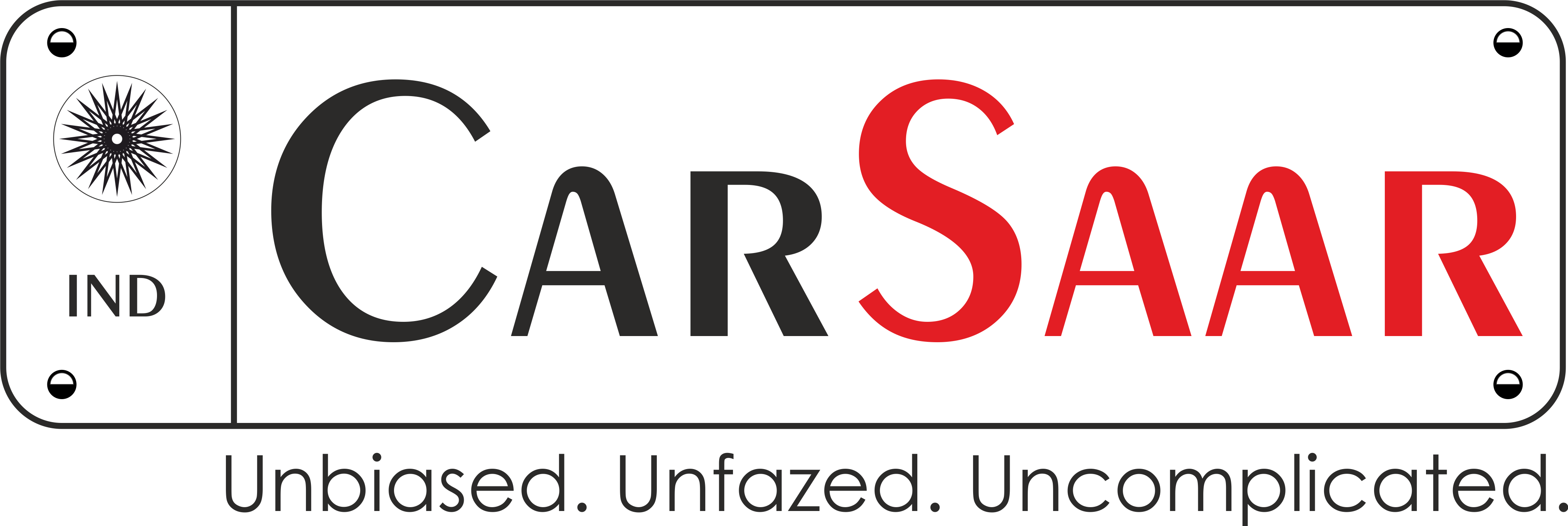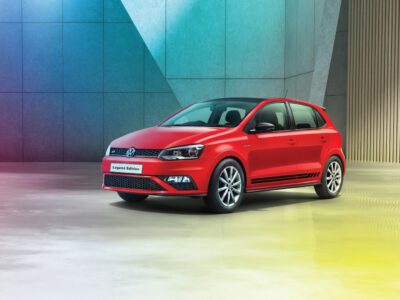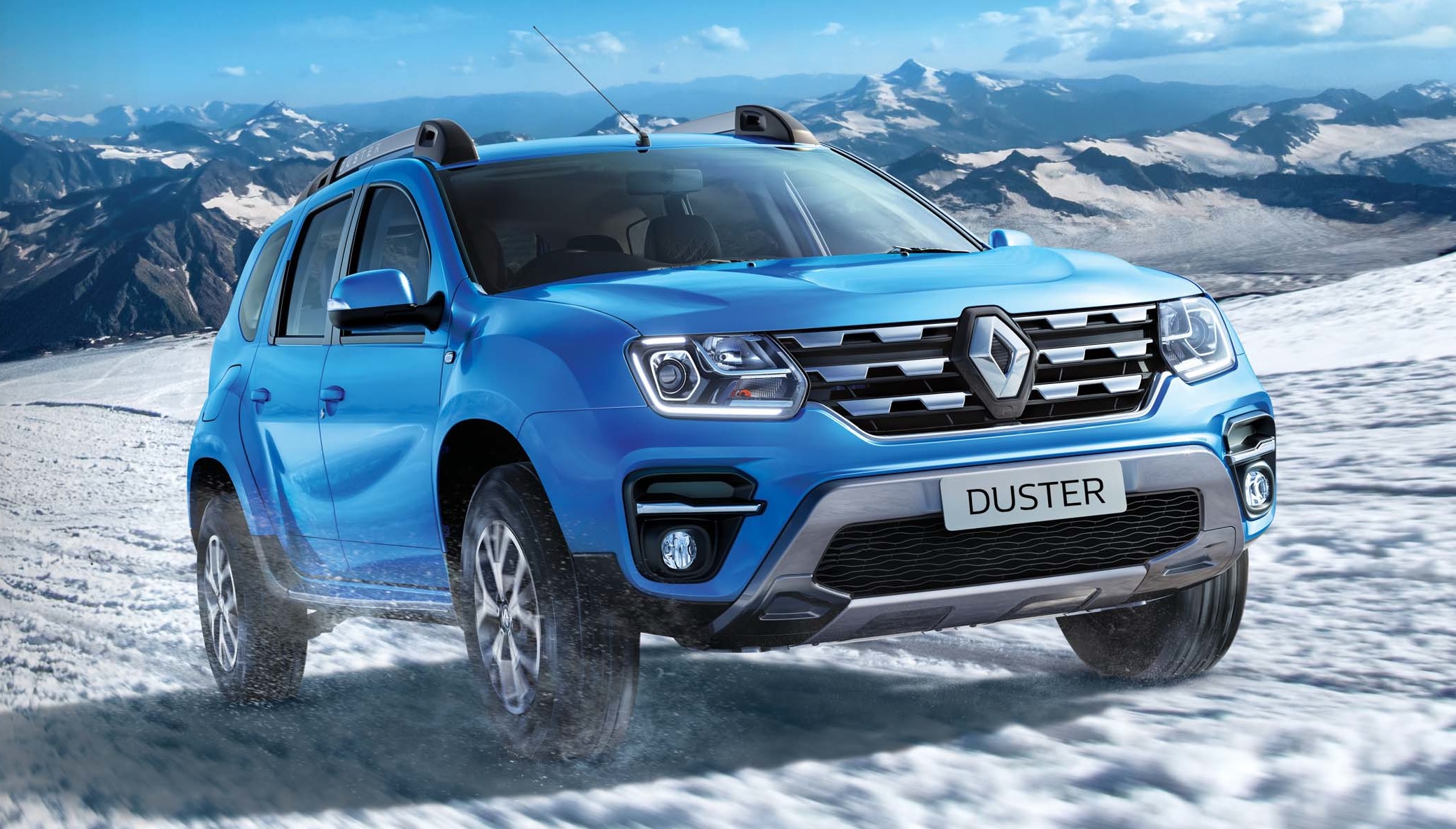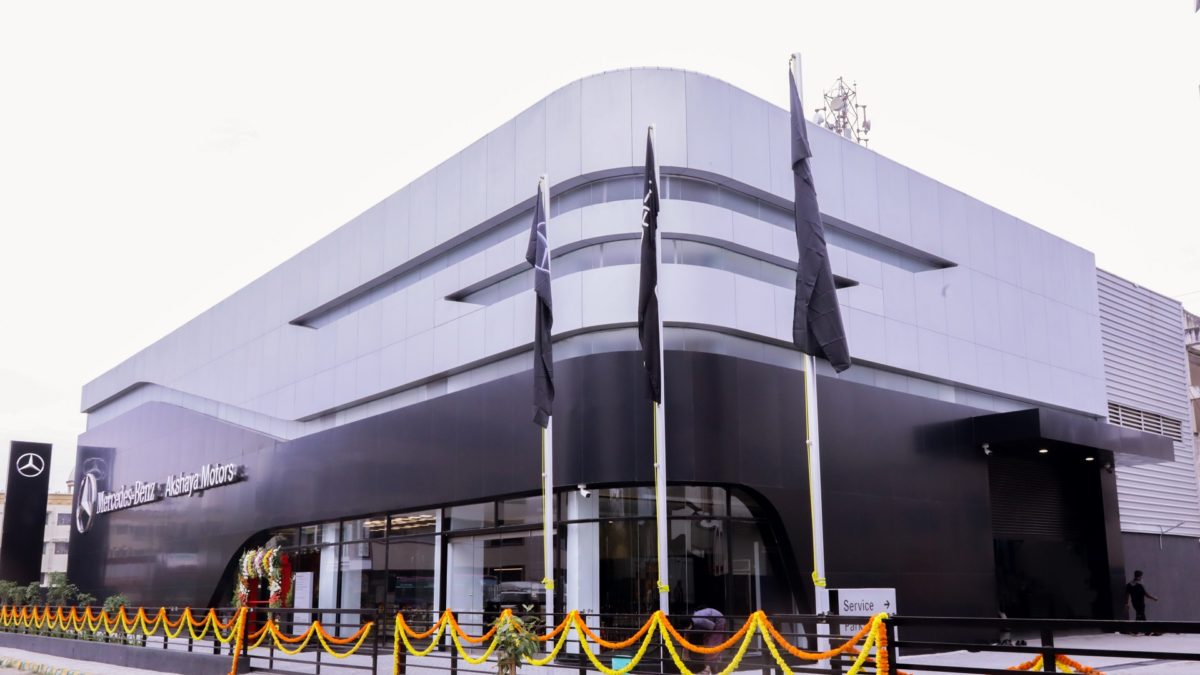Were you worried that Volkswagen might not bother upgrading the Polo and Vento to comply with BS6 (Bharat Stage 6) emission norms? The Germans did leave it late, but they have done it. Both the said models now meet the stricter emission norms. And to ensure that the price difference isn’t too steep between the BSIV and BS6 versions, Volkswagen had to make some mechanical changes. Before getting there, acquaint yourself with the prices:
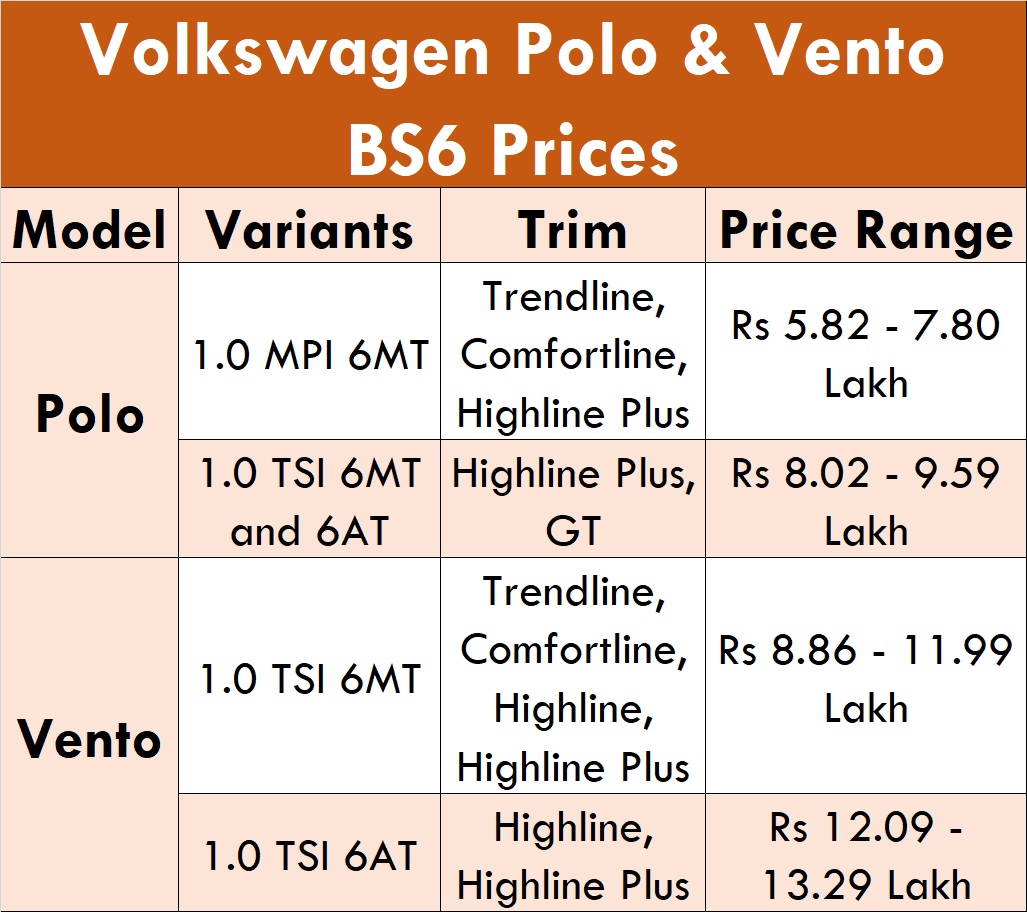
The table above gives away two of the most significant mechanical changes – there’s no diesel or DSG on offer any more. Both models will march on into the BS6 era as petrol-only. The Polo gets two 1.0-litre, 3-cylinder petrol engines – the MPI and the TSI. As standard, both come mated to a 6-speed manual transmission. Only the latter of the two gets the option of a 6-speed automatic (torque converter) in the GT trim. The TSI motor, which produces 108bhp/175Nm, also does duty in the Vento and comes with the same transmission options.
Courtesy of those mechanical changes, the Polo’s entry-level BS6 variant gets the same price tag as BSIV one did. The demand for the rest of the range has gone up by about Rs 4,000. As for the upgraded Polo GT, it costs approximately Rs 17,000 less than the one which had a 1.2-litre TSI engine and the 7-speed DSG. Coming to the Vento, the BS6 range costs between Rs 10,000 – 12,000 more than before.
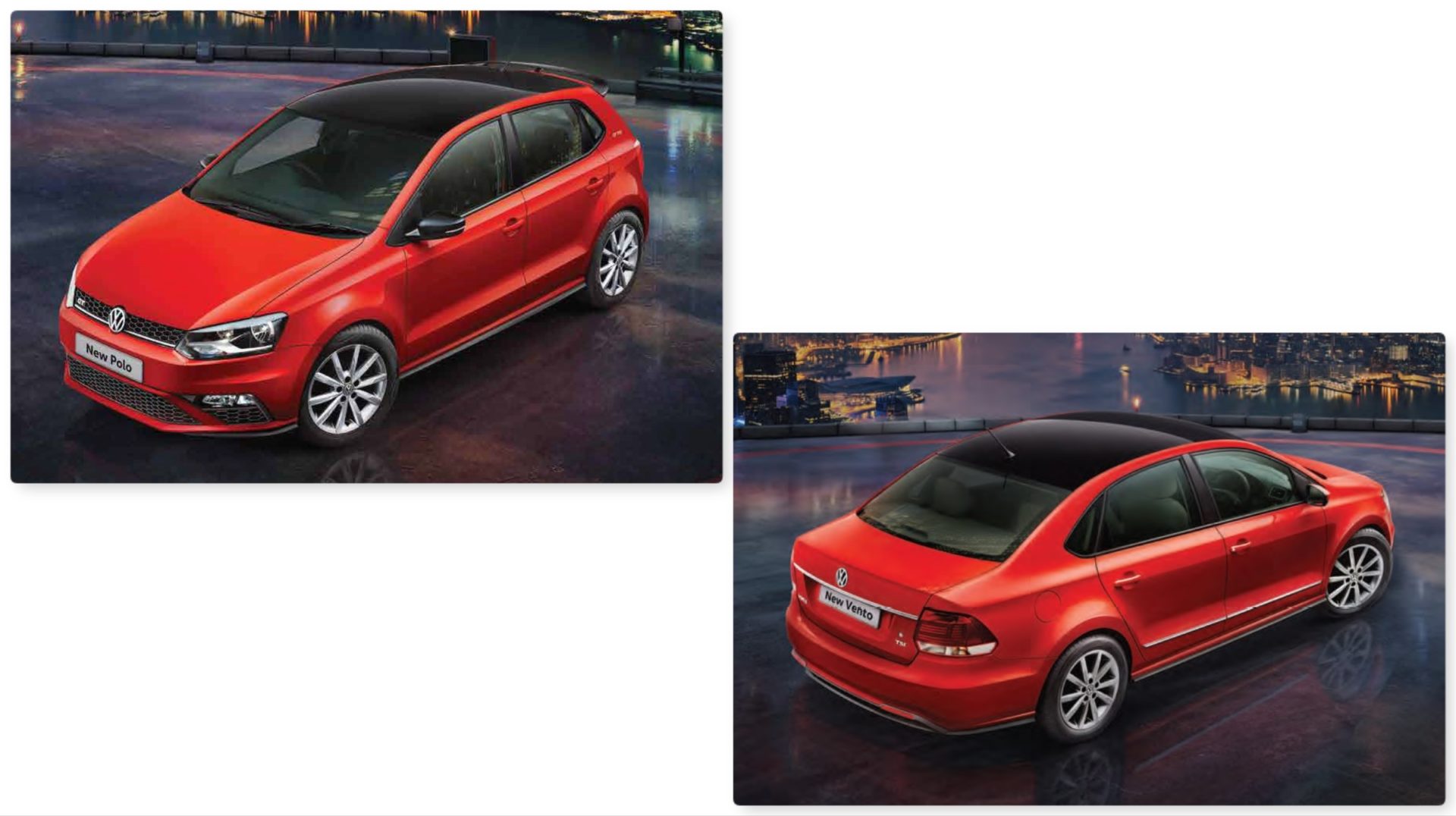
Volkswagen has yet to release other specifications such as mileage and power/torque figures for the 1.0-litre MPI motor. What the company has confirmed, however, is that both the models now come with heat-insulating glass which helps maintain the cabin temperature more effectively. Theoretically, that should result in lowering fuel consumption.
Under the India 2.0 project, Volkswagen has lined-up three new products – the T-Roc, Tiguan Allspace and the Taigun. While the first two will launch within March 2020, the Taigun should arrive sometime next year.

